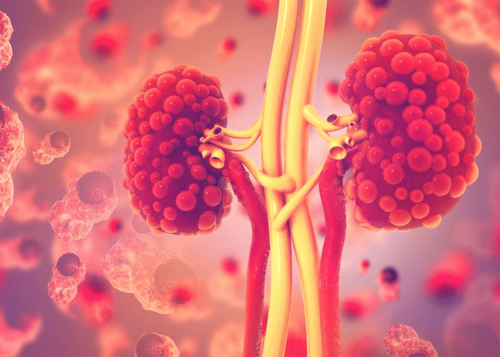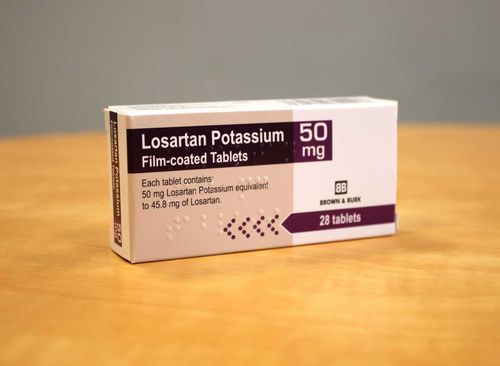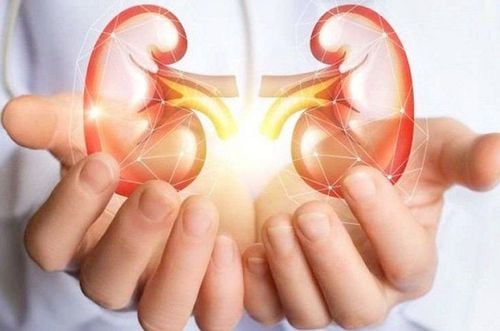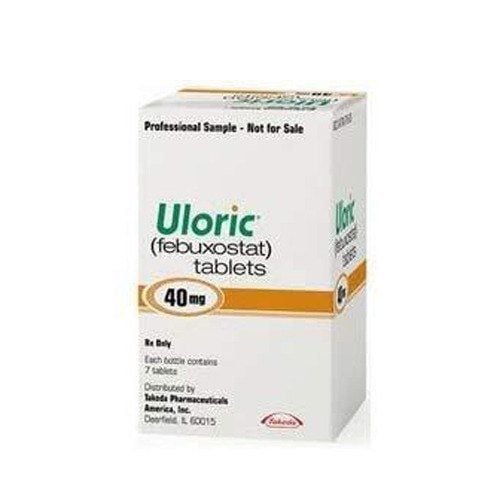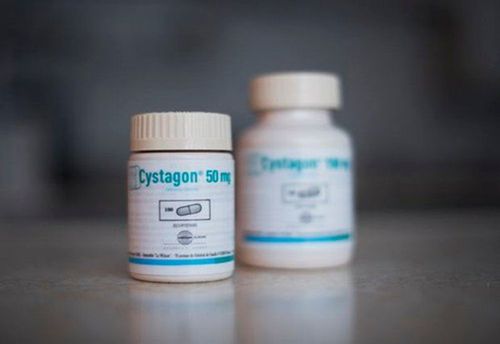This is an automatically translated article.
Gout is a metabolic disease involving many organs in the body such as joints, liver, kidneys, heart, ... in which the liver and kidney are the organs most affected in Gout patients,... Let's find Understand the role of liver and kidney in Gout disease and measures to enhance liver and kidney function for Gout patients through the article below.
1. Gout Pathology
Gout is a metabolic disease associated with increased levels of uric acid in the blood. Gout is characterized by acute or chronic arthritis pain caused by the deposition of Monosodium Urate crystals in connective tissues and joints, these crystals can also be deposited in the interstitium of the kidney causing kidney stones due to increased uric acid.
Hyperuricemia leads to accumulation of urate crystals in tissues, creating microtophis. When microtophilic particles in the joint cartilage are broken, it will lead to the onset of an acute gout attack. At the joints, a series of reactions will occur as follows: White blood cells focus on phagocytosis to release Lysozyme, which causes inflammation, and microcrystals activate Hageman factor leading to the formation of Kallicrein and Kinin, which play a role in causing arthritis. , activation of Plasminogen and complement, thereby leading to the formation of end products that also play a role in arthritis with symptoms including leg pain, finger joint pain,... Microcrystalline deposition periarticular, in cartilage tissue, in synovial membrane and bone tissue will lead to chronic osteoarthritis due to Gout. The presence of urate microcrystals in the soft, proximal tissues forms Tophi granules and eventually interstitial nephritis is caused by urate crystals deposited in the interstitial area of the kidney.
2. The role of the liver and kidney in the pathogenesis of Gout
Acid is produced every day and 75% of the acid content is eliminated by the kidneys to maintain the required concentration in the body. The liver and kidneys are important metabolic organs in the body, they play a very important role in the body's uric acid metabolism. Therefore, treatment of Gout should pay attention to the protection and enhancement of liver and kidney function. Clinically, the kidney is both a causative factor for Gout and can also be a consequence of Gout. Specifically, any cause that causes the kidneys to reduce uric acid excretion will increase blood uric acid levels, increasing the risk of forming needle-shaped sodium urate salts that are deposited in the body causing gout.
In addition, the kidney is also an organ involved in endothelial regulation. Declining kidney function disturbs endothelial factors such as metal ion concentration, pH, salt concentration,... increasing the risk of sodium urate salt formation causing gout.
The liver and kidneys have a coordinated relationship and interact with all organs in the body. Abnormalities of one organ will affect the operation and function of the other organs, even an entire system.
In patients with gout, sodium urate crystal deposition occurs in many organs in the body, in which the kidneys and joints have the earliest deposition rate. Sodium urate crystals deposited in the renal sinuses over time will form kidney stones. Symptoms of kidney stones such as urinary tract inflammation, urinary obstruction, fluid retention,...
3. Enhance liver and kidney function in Gout patients
"How to enhance liver and kidney function in patients with Gout?". In fact, the treatment of gout in patients needs to ensure that it does not affect liver and kidney function. Therefore, Gout patients with kidney disease and kidney complications are more difficult to treat than normal patients. In order for the treatment process to be effective, it is necessary to consider combining Gout treatment with rehabilitation of the patient's liver and kidney function. Some principles in the treatment of Gout to help enhance kidney function are as follows:
Diagnosis of Gout is mandatory with assessment of kidneys, liver, and urology; Patients with kidney disease and Gout need to pay attention to treat kidney disease first to improve to ensure treatment of Gout; The drug treatment regimen must ensure that no side effects damage or decrease kidney function. Diet in the treatment of Gout also plays an important role in protecting and enhancing kidney and liver function. Some dietary recommendations in patients with Gout are as follows:
Avoid eating foods containing large amounts of purines such as animal organs, beef, goose meat, shrimp, crabs, snails, crabs, mussels. ..; Limit the intake of vegetables such as asparagus, cabbage, spinach, mushrooms...; Do not eat foods high in fructose such as peaches, apples, pears, grapes; Do not drink alcohol, stimulants such as tea, coffee...; Patients should drink plenty of water, supplement with vitamin C every day. The diet should contain white meat such as river fish, chicken, low-purine vegetables such as cauliflower, celery, collard greens, spinach, cucumber, eggplant, etc.
4. Gout Prevention
Some methods to prevent Gout are as follows:
Visit a doctor if the patient shows symptoms of Gout, do not self-medicate but need to be examined and diagnosed by a treating doctor; Periodic re-examination will help patients control the disease, handle unusual problems; Exercise daily; Building a reasonable diet; Limit intake of red meat, seafood and animal organs. Currently, along with the development of society, the risk and incidence of Gout is increasing and tends to be younger. Therefore, patients need to visit a medical facility when they have typical symptoms of the disease for timely diagnosis and treatment.
Please dial HOTLINE for more information or register for an appointment HERE. Download MyVinmec app to make appointments faster and to manage your bookings easily.





